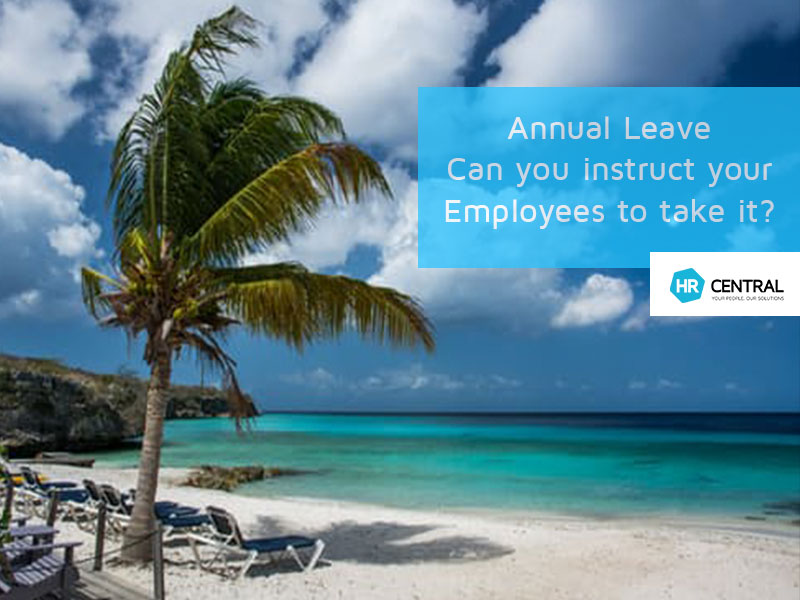In the normal course of working life, a staff member and their Manager must agree about when they are going on annual leave.
Employees can’t just take annual leave whenever they wish. They must first obtain their Employers consent. This restriction is necessary for a number of reasons. It would be hard to manage a business if your Employees could choose to take their leave whenever they wished, and without any notice to the Employer. There may be times during the year when it would be inconvenient to the business for Employees to go on holiday. Perhaps there are busier times of the year where all staff is required. Maybe the business is short-staffed at other times. In those cases, the Employer is within their rights to refuse a request for annual leave.
The Employer’s right to refuse consent is also limited in that they must have a good reason for refusing to let an Employee take holidays at their preferred time – examples being the genuine needs of the business referred to above.
But what happens if you don’t want to take your annual leave?
Fairwork states “An Employer can only direct an Employee to take annual leave in some situations”. These situations include:
- the business is closed during the Christmas and New Year period and
- an employee has accumulated excess annual leave
In most Modern Awards, businesses that incur an annual close down must:
- give at least four weeks’ notice of the close down (although some awards provide for a lengthier notice period); and
- the employee has sufficient leave to cover the period of the close down; and
- an employee with insufficient leave to cover the close down period is given unpaid leave for the duration of the close down; and
- the period of the close down counts as service; and
- the employer and the majority of employees may agree to three separate close down periods in a year provided one period is at least 14 consecutive days.
Under most modern awards, notwithstanding the provisions of the NES, if an Employer has genuinely attempted to reach an agreement with an Employee as to the timing of taking annual leave, the Employer can require the Employee to take annual leave by giving at least four weeks notice if the employee has eight or more weeks accrued annual leave and the amount of annual leave the Employee is directed to take is equal to or less than one quarter of the amount of annual leave accrued.
For full time permanent Employees, there is a minimum of four week’s annual leave accrued every year after their first year of employment.
The accrued balance of annual leave can normally only be reduced when:
- Employees take a paid holiday;
- Employees leave their employment and are paid for the holidays they did not take
If employees do not take their normal 4 weeks annual leave each year, or get paid out at least one week a year, or leave their employment, annual leave can accrue quickly.
Some employees want to accrue their leave like this because:
- they are saving up for a long holiday, for example an overseas trip; or
- they are anticipating that their employment will end soon and want to receive a large payout for their un-taken holidays when they leave.
Communication is key
Open communication between Employers and Employees is essential for staff who have large amounts of accrued leave. To prepare for employees taking leave it is best to require employees provide as much notice as possible. This is particularly importance when employees plan to take a large amount of their accrued leave.
Employees do not have an unfettered right to take holidays whenever they wish. They must first obtain their Employer’s agreement about when they will go on annual leave. Keeping an open dialogue between your employees is best practice.
Above all, everyone deserves a holiday! Employees are generally more productive and less likely to present a risk to health and safety when they have taken a break from work.

